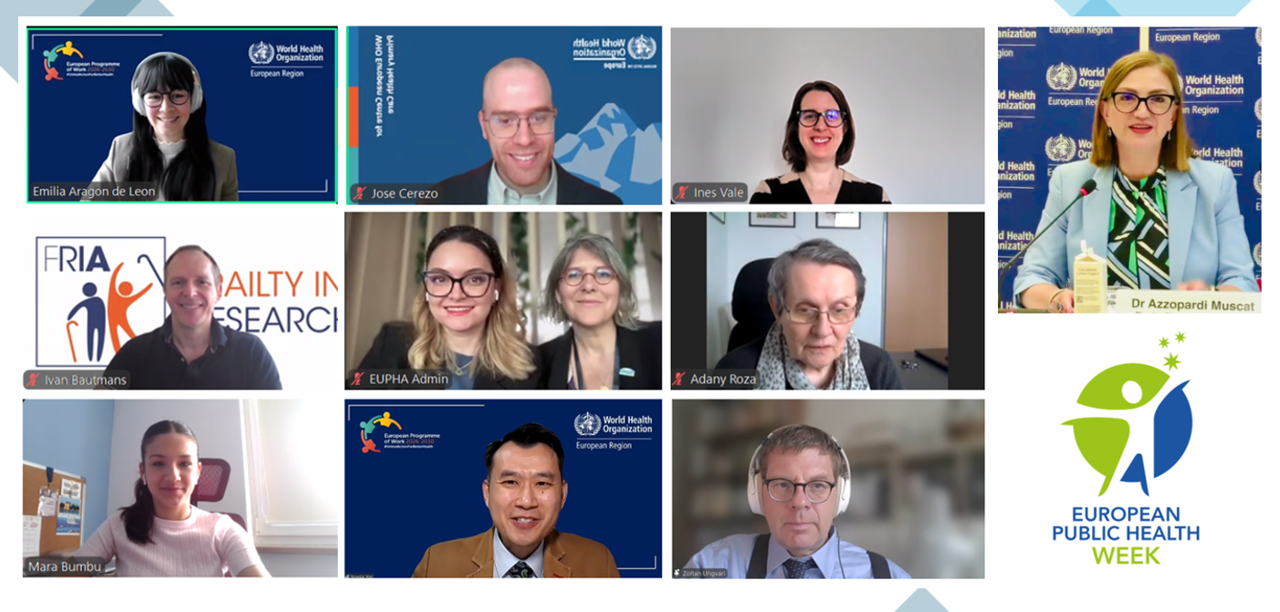Event highlights
As part of European Public Health Week, WHO/Europe, the European Public Health Association (EUPHA) and the EUPHA Healthy Ageing Section co-hosted a virtual event titled “Transforming multimorbidity care: prevention, early identification, and tailored approaches in Europe.” The session explored how countries are responding to the rise of multimorbidity – particularly among older adults – by adopting more integrated and people-centred models of care.

The event was opened by Charlotte Marchandise, Executive Director of EUPHA, and moderated by Emilia Aragón de León from WHO/Europe. Presentations spanned topics from cutting-edge research to on-the-ground innovations:
- Ivan Bautmans, Vrije Universiteit Brussel (Belgium), discussed the risks, trends and pathways linked to multimorbidity.
- José Cerezo, WHO European Centre for Primary Health Care (Kazakhstan), introduced population health management approaches.
- David Sgorbati, The Health Economics Unit (Midlands and Lancashire, United Kingdom), shared insights on AI-supported analytics in England.
- Inês Vale, family doctor at Unidade Local de Saúde do Litoral Alentejano (Portugal), highlighted clinical pathways to support patients living with multiple chronic conditions in rural regions.
“Addressing multimorbidity requires a shift in how we design care systems – moving away from single-disease models towards integrated, equitable and proactive approaches that meet people’s real needs as they age,” said Natasha Azzopardi-Muscat, Director of Country Health Policies and Systems at WHO/Europe.
Participants emphasized the need for stronger primary care, better early identification tools and digital skill-building for health professionals to support people living with multimorbidity.
The event also contributed to the co-development of the forthcoming WHO/Europe strategy “Ageing is living: promoting a lifetime of health and well-being (2026–2030)”. The strategy aims to equip Member States to build systems that support healthy ageing, focusing on prevention, care integration, long-term care transformation and enabling environments.
“Our new strategy takes a multi-pronged approach – including data analysis, stakeholder engagement and action prioritization – to address challenges like multimorbidity,” said Dr Yongjie Yon, Technical Officer for Ageing and Health at WHO/Europe. “We’re grateful for the engagement of networks like EUPHA as we shape an agenda that is both practical and transformative.”




